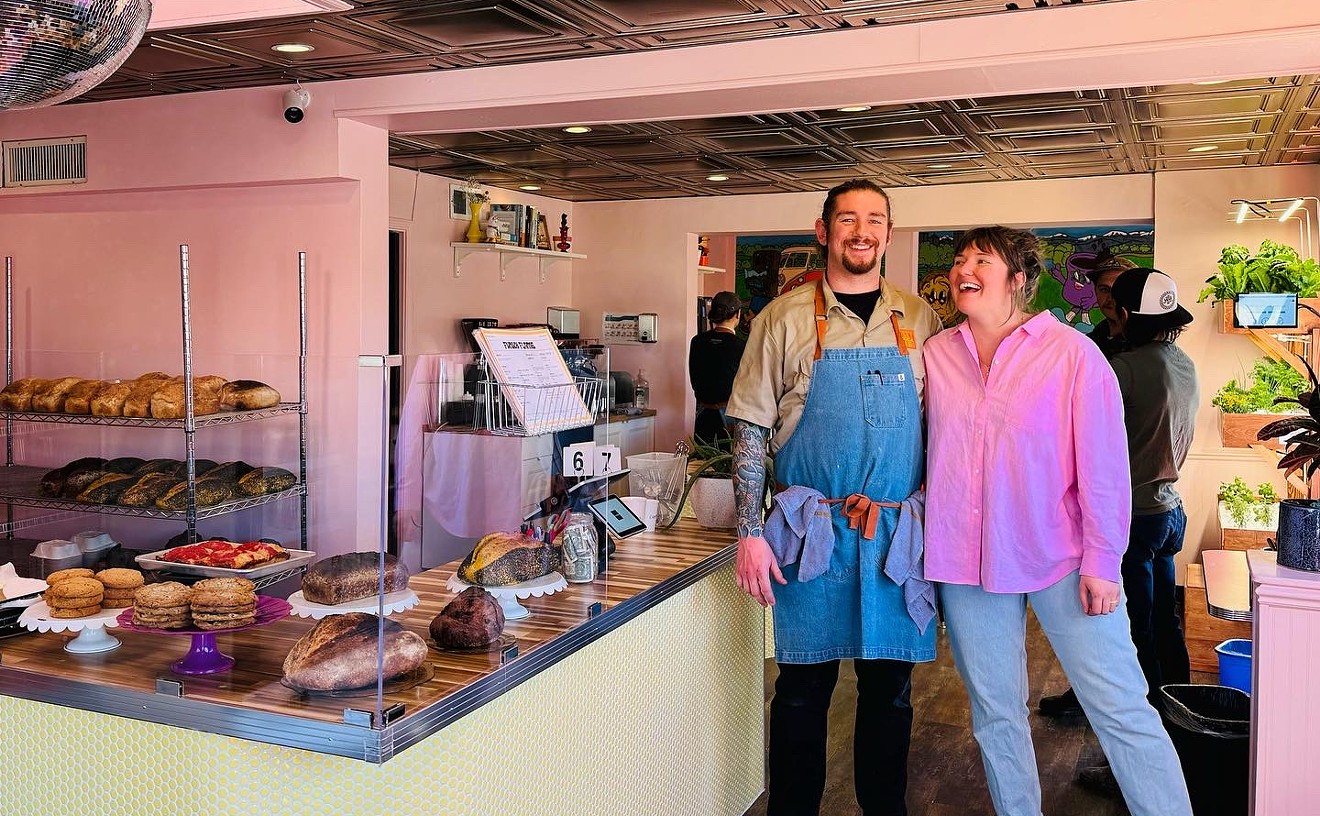This is the third in a series of pieces profiling Colorado-grown products...and what some local restaurants do with them.
Why is Red Wagon Organic Farm's produce so beloved among Colorado's chefs? Simple: They know when to let it go. "If the quality isn't there, we simply don't offer it for sale anywhere," says Wyatt Barnes, who founded Red Wagon with his wife, Amy Tisdale. "A lot of farms won't do it like that."
See also: - Hazel Dell mushrooms provide Colorado's 'shroom service - Il Mondo Vecchio gets cheeky with guanciale, salumi
Barnes has the plain-spoken demeanor and brutal honesty of a true salt-of the-earth farmer, the kind of guy who would (and does) let a bunch of crops waste away rather than sell poor product to a loyal group of chefs and consumers. "If it's not up to par, he'll tell me and he won't sell it," confirms Steven Redzikowski, executive chef at Oak at Fourteenth in Boulder. In fact, Red Wagon is Oak's primary local farm, and the kitchen staff shapes menus depending on what produce Barnes has available.
Practically half of Oak's menu includes something grown by Red Wagon -- from thin, green garlic scapes in a shrimp risotto, to the basil in the infused vodka, to golden pickled beets in a beet and long bean salad. Briny and tender, tossed with bleu cheese and tart honey mustard vinaigrette, these beets are treated like vital ingredients, not tossed off as garnishes. And that's the way it's meant to be, says Barnes: "The restaurants that do well with it, they just want to showcase the flavor that's there, and don't try to mess with it too much."
After quitting an unfulfilling office job, Barnes decided to work on a small farm off Valmont Road near Boulder. Fast forward a year or two, and he and Tisdale had purchased the land from Barnes' former employer. Starting their own farm was tough: Barnes worked in the fields every day for seven straight months, and after paying off all of their expenses for the first season, the couple was left with just $13. "That was our entire pay for the season," recalls Barnes. "But I felt that that was what I had to do to get it to go.""People say we work hard in the kitchen," marvels Redzikowski, who first served Red Wagon produce when he helped to open Frasca Food and Wine in 2004. "But the farmers work twice as hard. And nobody gives them the credit." And although Red Wagon now has another farm in Longmont, a CSA, successful farmstands in Lafayette and at the Boulder Farmers' Market, and the accolades of dozens of local chefs, it's never been all that easy.
"We're more diverse than anybody," says Barnes, "and it's really hard to manage all that." Red Wagon grows four other varieties of beets in addition to the wonderful specimens now at Oak, both green and purple basil ("Amazingly great," says Redzikowski), and several types of heirloom tomatoes ("Like cheating, they're so good") among over a hundred other crops. Figuring out their needs, along with wrangling with labor, regulations, organic certifiers and restaurants, while still ensuring quality, is an arduous task.Yet Red Wagon remains an inspiration for the local, organic food movement that's taken root in the area in the face of profit-driven corporations. "The hippies started the whole organic thing, then it got mainstreamed, and taken over by corporate interests," says Barnes. "It's all about efficiency; I don't see how it's about sustainability."
Follow @CafeWestword










